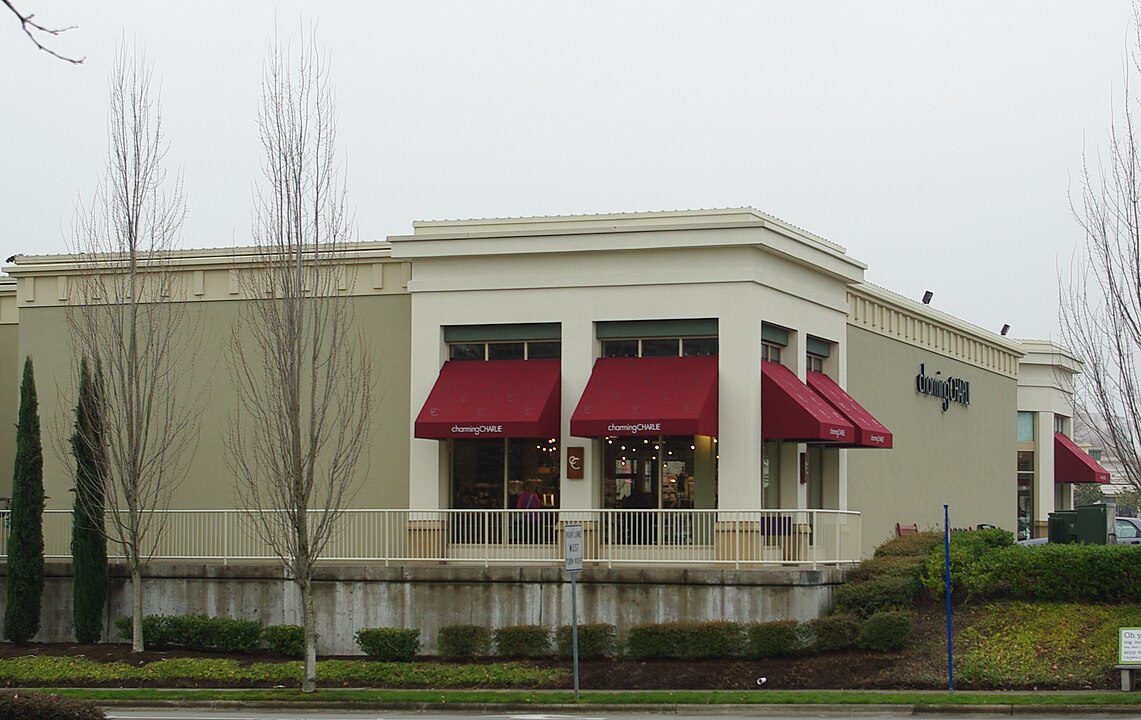In a rapidly changing consumer landscape, many once-beloved brands find themselves struggling to keep pace with evolving preferences and market demands. You might be surprised by the iconic names that could face decline in the coming years, especially as newer trends emerge and consumer loyalty shifts.
Understanding which brands may not survive the decade can provide insight into broader market trends and help you make informed choices as a consumer. As you explore the factors contributing to these potential disappearances, you’ll gain a better appreciation for the challenges that beloved brands face today.
Guess

Guess, a well-known fashion brand, recently announced the closure of 20 U.S. stores. This move highlights the challenges it faces in today’s market.
You may have fond memories of their denim and iconic logo. However, with changing consumer preferences, the brand needs to adapt to stay relevant.
As you watch the fashion industry evolve, it will be interesting to see how Guess navigates these tough waters.
JCPenney

You may have noticed that JCPenney is facing tough times. The company has been closing several stores across the nation, which could impact your shopping options. In 2024, they filed for bankruptcy, and the trend of store closures is expected to continue into 2025.
As a beloved brand for many, it’s sad to see it struggle. Keep an eye on updates, as the future of JCPenney remains uncertain.
Joann

Joann has been a favorite among craft enthusiasts for years. Sadly, the company filed for bankruptcy in 2024 and is now planning to close around 500 stores. This is a tough blow for many who love DIY projects and sewing.
With supply issues and store closures, it’s uncertain what the future holds for Joann. You may want to check local store status or explore online options while you can.
Henri Bendel

Henri Bendel was once a celebrated name in fashion, known for its chic handbags and accessories. Founded in 1895, it had a flagship store in New York City that became a shopping destination.
However, despite its storied history, Henri Bendel closed its doors permanently in 2019. The brand struggled to compete in a rapidly changing retail landscape, making it a cautionary tale for other retailers.
Blockbuster

You likely remember the excitement of browsing movie rentals at your local Blockbuster. This once-iconic chain dominated the home video market during the 1990s and early 2000s.
However, it struggled to adapt to the digital age and competition from streaming services. By 2010, Blockbuster filed for bankruptcy and closed many stores. Today, only one store remains, serving as a nostalgic reminder of a different era in entertainment.
Pier 1 Imports

Pier 1 Imports has long been a favorite for home decor. You might remember it as a go-to spot for unique furnishings and lovely accessories.
However, the chain faced significant challenges, filing for Chapter 11 bankruptcy in February 2020. They have since shifted to an online model, but whether they can regain their charm remains uncertain.
Borders

Borders was once a go-to place for book lovers. You could browse through shelves of titles and enjoy a cozy reading atmosphere.
However, the rise of online retailers like Amazon left Borders struggling to adapt. Their failure to embrace e-books and digital sales resulted in a decline that led to their closure.
Many still remember the joy of visiting a Borders store, making it a nostalgic piece of retail history.
The Weinstein Company

The Weinstein Company was once a powerhouse in the film industry, known for producing critically acclaimed films. However, it faced significant challenges amid serious allegations against its co-founder, Harvey Weinstein.
These issues not only harmed its reputation but also led to financial struggles. Many people wonder if this beloved brand can recover from such a turbulent period.
Vine

Vine was a popular six-second video platform that captured the imagination of users. It allowed you to share looping clips with your friends and the world, quickly becoming a hotbed for creativity.
Despite its initial success, Vine struggled to compete with other social media giants like Instagram and TikTok. In 2017, Twitter officially shut down the app, leaving many fans longing for its quirky charm.
Tower Records

You might remember the vibrant atmosphere of Tower Records. It was more than just a store; it became a cultural hub for music lovers. People flocked to browse the latest albums and explore rare finds.
Unfortunately, the rise of digital music changed everything. Tower Records couldn’t keep up and eventually filed for bankruptcy. Today, it serves as a nostalgic reminder of the music retail experience you once enjoyed.
Nokia

Nokia was once the leader in mobile phones, beloved for its sturdy designs. You might remember the classic Snake game on their devices.
However, the rise of smartphones changed everything. When Apple introduced the iPhone in 2007, Nokia struggled to keep pace.
Their late response to this shift has left many wondering if they can really thrive in today’s fast-evolving market. Your feelings about their potential future depend on how well they adapt to new technologies.
Charming Charlie

Charming Charlie was once a go-to for affordable and trendy accessories. Unfortunately, the brand faced significant challenges, leading to its bankruptcy in 2019.
Even after being purchased by its original founder, the brand struggled to regain its former popularity. You may have noticed fewer stores around, reflecting ongoing difficulties in the retail landscape.
Touchstone Pictures

Touchstone Pictures was a unique film distribution label created by Disney in the 1980s. It played a key role in introducing more diverse films to audiences, often targeting adult viewers.
Though it produced some memorable hits, it was discontinued about a decade ago. You might remember films like “Good Morning, Vietnam” and “The Sixth Sense,” reflecting its influence in Hollywood.













